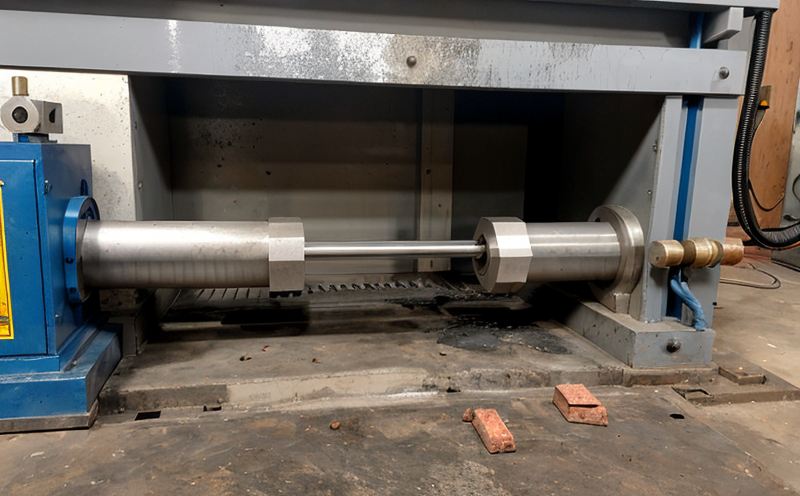ASTM D6110 Charpy Impact Testing of Rigid Plastics
The ASTM D6110 test method is a critical standard used to determine the impact strength or toughness of rigid plastics. This testing procedure evaluates how well a material withstands sudden, sharp impacts. Understanding this property helps in assessing the suitability of materials for applications where shock and stress resistance are paramount.
Impact testing is essential for ensuring that materials meet the required standards set by regulatory bodies such as ASTM International. It provides valuable insights into the mechanical behavior under dynamic loading conditions, which can significantly influence product design and performance. For instance, in automotive manufacturing, knowing the impact properties helps to optimize safety systems like crumple zones.
The Charpy V-notch test is one of several methods used within this standard. During the test, a specimen with a specific notch shape (V-shaped) is subjected to a controlled impact load. The energy absorbed during fracture is then calculated and reported as the impact strength in joules per square meter (J/m²). This metric reflects not only the material's toughness but also its ability to absorb shock without fracturing.
Preparation of specimens for ASTM D6110 testing involves cutting them into standard shapes with precise dimensions. The notch is typically machined according to specific guidelines provided in the standard, ensuring consistency across samples and labs. Proper specimen preparation ensures accurate results that are reproducible and reliable.
The instrumentation used for this test includes specialized impact testing machines capable of delivering high-impact loads at controlled rates. These machines must be calibrated regularly to maintain accuracy. The test setup consists of a pendulum swinging down onto the specimen, breaking it along its notched area. Advanced systems may use electronic sensors to measure both the force and displacement during the impact.
Interpreting the results requires careful analysis of the fracture surface and energy absorption data. Compliance with ASTM D6110 ensures that all aspects of the test procedure are followed correctly, leading to valid comparisons between different materials or versions of a material over time.
Applied Standards
| Standard | Description |
|---|---|
| ASTM D6110 | This standard specifies the test methods for determining the impact strength of rigid plastics. It covers four types of specimens: notched and unnotched, as well as two sizes. |
| ASTM E399 (Standard Practice for Preparing Notched Bar Specimens) | Describes how to prepare specimens with V-notches according to ASTM D6110 requirements. |
| ASTM E813 (Standard Practice for Evaluating Impact Strength of Plastics by Means of Charpy Pendulum Test) | Presents the general principles, specifications, and practices related to impact testing using a pendulum-type machine. |
Benefits
- Ensures compliance with industry standards for rigid plastics.
- Provides reliable data on the toughness of materials, aiding in product development and quality assurance.
- Saves time by providing standardized testing methods that can be universally applied.
- Promotes consistent results across different laboratories due to precise methodologies outlined in ASTM D6110.
- Aids in identifying suitable materials for applications requiring high impact resistance, such as automotive components or safety equipment.
Competitive Advantage and Market Impact
Conducting ASTM D6110 Charpy impact testing offers significant competitive advantages in several ways. Firstly, it allows companies to demonstrate their commitment to quality by meeting stringent industry standards. Secondly, understanding the mechanical properties of materials helps manufacturers make informed decisions about material selection early in the design process.
In addition, having accurate and consistent data from independent third-party laboratories can enhance brand reputation among customers seeking trustworthy suppliers. This testing also supports innovation within R&D departments by providing insights into how changes in formulation or processing affect a material's impact resistance.
From a market perspective, businesses that invest in ASTM D6110 compliance may see increased demand from industries like automotive, aerospace, and electronics, where safety and durability are critical factors. Compliance can also open doors to new markets and opportunities for international trade by meeting global standards.





